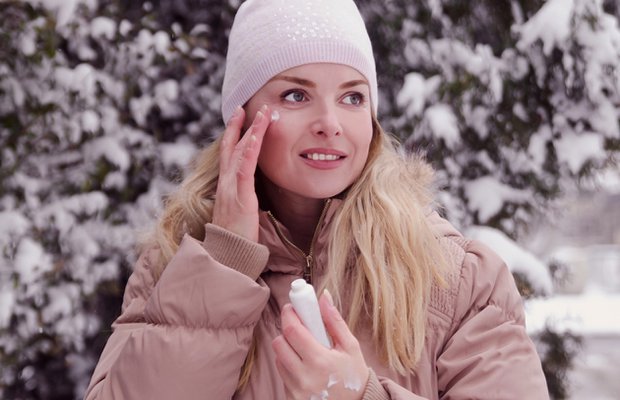Ways to prevent skin dryness in cold weather
The more the sun damages our skin in summer, the more it wears out in cold and snowy weather. Especially skiers should use sunscreen against snowburn. Precautions should be taken against irritation and dryness caused by cold weather. Dermatology, Venerology and Cosmetology Specialist Prof. Dr. Emel Güngör talked about what needs to be done to have a healthy skin in the winter months.

UV rays reach the earth’s surface very heavily even in cloudy weather and can cause both short-term and long-term skin damage. In addition, cold weather dries and irritates the skin. Dermatology, Venerology and Cosmetology Specialist Prof. Dr. Emel Güngör stated that choosing sunscreen creams that contain moisturizers, support the barrier functions of the skin, soothe the irritation that may occur, have antioxidant properties, and contain both UVA and UVB filters will ensure that measures are taken against all these setbacks.
Skiers should definitely use sunscreen
Especially in snowy weather, sun rays adversely affect the health of the skin if precautions are not taken. Since snowflakes reflect 50-90 percent more of the sun’s rays, the UV measure increases exponentially. Snow burns can also be seen in areas such as under the chin, upper lip and neck, which are normally protected from direct light due to reflection.
Pointing out that ultraviolet (UV) rays from the sun are even heavier at high altitudes, that is, in ski resorts, Prof. Dr. Emel Güngör said, “This leads to easier drying and irritation of the skin. For these reasons, those who go on a ski holiday should apply moisturizers suitable for closed body areas, and use sunscreen creams on their facial skin that contain both UVA and UVB, broad-spectrum moisturizing properties and soothing irritations.
UVA and UVA protection required against snow burn
 prof. Dr. Güngör said the following about what needs to be done to prevent snow burns: “It is possible with sunscreen creams that contain moisturizers, support the barrier functions of the skin, soothe the irritation that may occur, have antioxidant properties, and contain both UVA and UVB filters. Works with these features ensure that measures are taken against all these setbacks. In cases where no precautions are taken, help from a dermatologist should be sought in order to avoid any spots or permanent redness after the snow burn occurs.
prof. Dr. Güngör said the following about what needs to be done to prevent snow burns: “It is possible with sunscreen creams that contain moisturizers, support the barrier functions of the skin, soothe the irritation that may occur, have antioxidant properties, and contain both UVA and UVB filters. Works with these features ensure that measures are taken against all these setbacks. In cases where no precautions are taken, help from a dermatologist should be sought in order to avoid any spots or permanent redness after the snow burn occurs.
Should be repeated every 2 hours
Reminding that sunscreen creams should be repeated every 2 hours, Prof. Dr. Saying that some sunscreens are resistant to sweat and water, Güngör noted that since the cream will be removed from the skin by drying the skin after sweating or washing, it should be used again without waiting for 2 hours in these cases.
The protective filters you will use for children should be mineral and organic.

Stating that children’s skin is more sensitive than adults, Prof. Dr. Güngör continued his words as follows: “Children’s skin is more sensitive than adults, and it is necessary to be more careful in choosing sunscreens to be used on their skin. It should be noted that whether the sun-protective filters are mineral or organic, they contain moisturizing spies that their skin will tolerate.”
Pay attention to the content of moisturizers
Cooling the air, heating the indoor environment and wearing more woolen clothes increase the dryness of the skin. Dryness of the skin also reduces the barrier function of the skin. Therefore, the skin needs to be moisturized. The most valuable feature in humidifier selection; It is suitable for one’s skin, does not cause acne and allergies, does not leave an oily feeling when applied, and is generally environmentally friendly and does not harm nature.
Eczema and skin conditions may worsen
Reminding that the dryness of the skin increases due to cold weather and thick clothes in winter, Prof. Dr. Emel Güngör stated that this situation can cause eczema, especially itching: “Dryness in the skin lowers the itching threshold. Both the dryness of the skin and itching facilitate the development of eczema on our skin or exacerbate the existing one. Eczema, which initially appears with irritation, may also lead to the development of allergic eczema in some susceptible individuals by contact of allergens with the irritated skin. Drying of our skin can also worsen existing skin diseases.”




